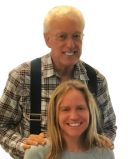Creativity
Creativity: Don't Listen to the Naysayers
The major obstacle to being creative is telling ourselves we can't be creative.
Posted February 26, 2020

I recently had to let go of my music teacher. Good-bye. So long. Farewell.
I had decided, later in life, that I wanted to take up a new musical instrument, and I thought I had found the perfect teacher. I liked him; I respected him; and he was willing to work hard as a teacher. But there was a problem.
I decided to write a paper on musical intelligence and was quite excited about writing it. I study intelligence; for many years, I have been a modestly good cello player and a so-so piano player; thus, the paper seemed like a natural synthesis of my interests in psychology and music.
I sent the paper to my music teacher for comments. I was taken aback when the teacher suggested that, because I was not an experienced musician, I was utterly unqualified to write it. I let it go.
I later wrote a paper on love of musical instruments—I also study love—and this time, the teacher went ballistic. How dare I write such a paper? The term the teacher used was that the paper was “insulting” because I was not sufficiently trained in musicianship. At that point, I came to realize, my association with the teacher was over.
The music teacher and I had many similar views regarding the teaching of music. It had seemed like a great fit between teacher and student. But I realized at that point we had one extremely fundamental disagreement over the nature of creativity.
It might seem that the most creative people in a field always would be those who know the most about the field. Certainly, one needs to be at least somewhat knowledgeable in a field to be creative in it. But research my former graduate student Peter Frensch (now a professor at Humboldt University in Germany) and I did on expertise showed that being an expert actually can interfere with skilled performance. With expertise can come entrenchment and rigidity, and the loss of creativity that results when one starts to believe one knows it all and has nothing to learn.
Creativity is not merely about knowledge of subject matter, and it certainly is not some kind of inborn trait that can be quantified through a standardized creativity test. Rather, creativity is, in large part, an attitude toward life. My former graduate student at Yale, Todd Lubart (now a professor at the Rene Descartes University in Paris) and I concluded that creative people are like good investors—they buy low and sell high, but rather than doing so in financial markets, do so in the world of ideas. They are willing to generate and champion unpopular ideas. They defy the crowd.
More recently, I concluded that creative people not only defy the crowd. They also are willing to defy themselves—to let go of old ideas when those ideas no longer work for them. And they are willing to defy all the unconscious presuppositions they and others have (what is sometimes called the “Zeitgeist”) about how things not only are, but, seemingly, must be. In other words, creativity is not some kind of arcane knowledge or set of skills. Rather, it is an attitude toward life—that one is willing to go where one’s ideas take one, opposition be damned.
There virtually always is opposition to creative ideas. If you want to live a creative life, you have to be willing to take on the opposition and try to overcome it. You also have to be willing to take risks and sometimes fail. Perhaps most importantly, you need to believe in yourself. This doesn’t mean going around saying how great you are. It means believing that, with sufficient effort, you can make the difference you want to make.
I had to let go of the music teacher because the music teacher specialized in telling me all the things I couldn’t do. But creativity is about telling yourself all the things you can do if you put your mind to it. Ironically, the music teacher had complained to me about people telling him what he couldn’t do. But somehow, he had internalized the mindset and was now doing the same to me.
Do you want to be creative? Do you want to make a difference in a world that resists people making a difference? Believe in your power to effect change. You may or may not succeed. But if you don’t believe in yourself—if you are not what Albert Bandura has referred to as “self-efficacious”—you likely will find that no one else believes in you either. Nothing ventured, nothing gained.
I tell my students that, in my long experience selecting people for many different kinds of positions, the best predictor of success is not the educational degrees one has or the college one went to or the scores one had on the obscure and often unimportant skills measured by standardized tests. The best predictor is whether the person is a “can-do” person. If they believe they can do what needs to be done, they usually can figure out a way. If they don’t believe, they never even try to find a way.
If you want to be creative, don’t worry about your SAT scores, ACT scores, GRE scores, grade-point average, or what kind of mental inheritance you acquired from your parents. Rather, take on a creative attitude toward life. It’s hard to do. There is so much pressure to conform!
I experienced this pressure myself in graduate school, when one day, my fellow graduate students and I, all in our advisor’s lab, were asked what we wanted to study in graduate school. Every single one of them sucked up and said what the advisor wanted to hear. And you know what? So did I! I determined never to do that again, and I never have. To be creative, go your own way. Make the difference only you can make!
References
Sternberg, R. J. (2018). The triangle of creativity. In R. J. Sternberg & J. C. Kaufman (Eds.), The nature of human creativity (pp. 318-334). New York: Cambridge University Press.
Sternberg, R. J. (2018). A triangular theory of creativity. Psychology of Aesthetics, Creativity, and the Arts, 12, 50-67.




